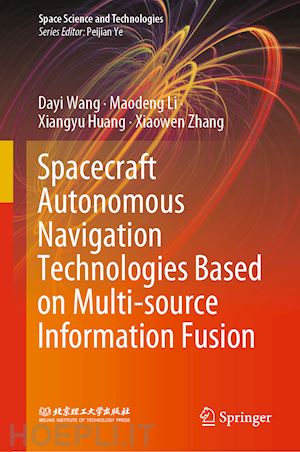Dayi Wang, Professor, is currently serving as Vice President of the Beijing Institute of Spacecraft System Engineering, CAST. He is a recipient of the National Science Fund for Distinguished Young Scholars and the Chief Technologist of the “973” Project. Dr. Wang has carried out innovative work on spacecraft autonomous navigation and control, making great contributions to the success of China’s Chang’E lunar missions. He received the 2016 Science and Technology Innovation Award from Ho Leung Ho Lee Foundation and has won one National Technological Innovation prize (second class) and several ministerial level prizes (first class 4 times and second class 3 times).
Maodeng Li received his B.S. and Ph.D. degrees in Aerospace Engineering from Harbin Institute of Technology, Harbin, P.R. China, in 2006 and 2011, respectively. From September 2011 to August 2013, he was a Postdoctoral Research Associate at Beijing Institute of Control Engineering(BICE). Since August 2013, he has been a Senior Engineer at BICE. His current research interests include spacecraft autonomous navigation and GNC design for planetary landing missions.
Xiangyu Huang received his B.S. and Ph.D. degrees in Aerospace Engineering from Harbin Institute of Technology, Harbin, P.R. China, in 1999 and 2005, respectively. Since August 2005, he has been working at the Space Intelligent Control Laboratory, Beijing Institute of Control Engineering (BICE), where he is currently a Professor and Senior Research Specialist. He was a GNC Engineer for the Chang’E-3 lunar landing mission, and his current research focus is on GNC design for planetary landing missions. He has won one National Technological Innovation prize (second class) and three ministerial level prizes (first class).
Xiaowen Zhang received his B.E. degree from Harbin Engineering University, Harbin, China, in 2005,and his M.E. degree in Control Theory and Control Engineering from China Academy of Space Technology, Beijing, China, in 2009. He is currently a Senior Engineer at Beijing Institute of Control Engineering. His research interests include GNC system design for deep space exploration missions and spacecraft autonomous navigation and guidance technologies. He has won one first class ministerial level prize.












